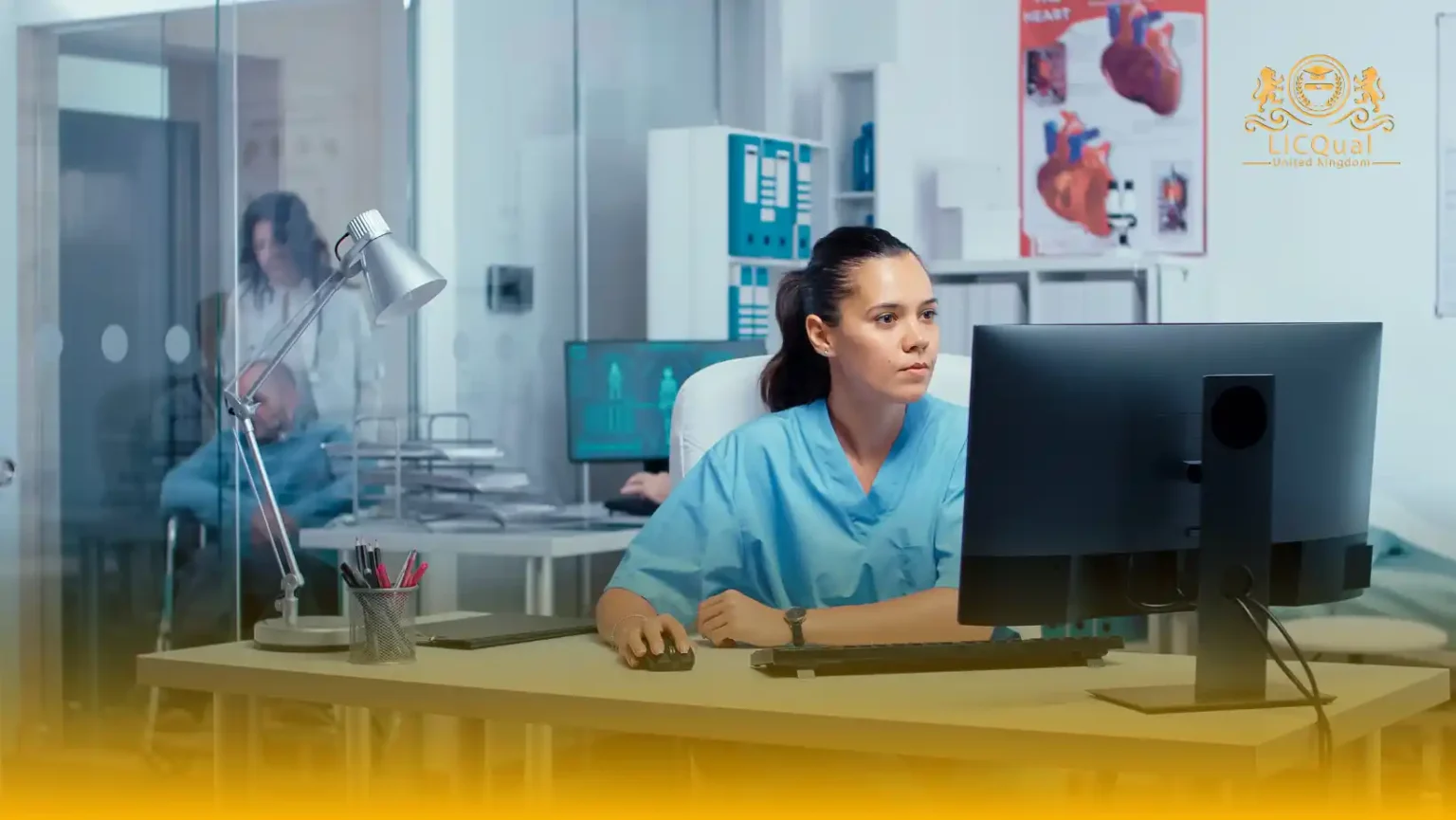The integration of digital technology in healthcare is revolutionizing patient care, clinical workflows, and nursing practices. The LICQual Level 1 Award in Digital Technology in Nursing is designed to equip aspiring nurses, healthcare assistants, and nursing students with essential digital skills to thrive in modern healthcare environments. This award provides a foundational understanding of how technology can enhance nursing care, improve patient outcomes, and streamline clinical processes.
Learners will explore key concepts such as electronic health records (EHRs), digital patient monitoring systems, telehealth applications, and basic data management. The course emphasizes practical skills, enabling participants to confidently use digital tools in day-to-day nursing activities while understanding the importance of data security, patient confidentiality, and ethical considerations in healthcare technology.
Through interactive sessions, case studies, and hands-on activities, participants will develop the ability to apply digital solutions effectively in clinical settings, enhancing communication, record-keeping, and patient care efficiency. Completing the Level 1 Award in Digital Technology in Nursing lays a strong foundation for further professional development in healthcare technology and digital nursing practices.
This program is ideal for those beginning their nursing career, seeking to build confidence in using digital tools, and aiming to contribute to innovative, technology-driven healthcare delivery.
Course Overview
Qualification Title
LICQual Level 1 Award in Digital Technology in Nursing
Total Units
6
Total Credits
6
GLH
12
Qualification #
LICQ2200512
Qualification Specification
To enroll in the LICQual Level 1 Award in Digital Technology in Nursing applicants must meet the following criteria:
|
Qualification# |
Unit Title |
Credits |
GLH |
|---|---|---|---|
|
LICQ2200512-1 |
Introduction to Digital Tools in Healthcare |
1 |
2 |
|
LICQ2200512-2 |
Basics of Electronic Health Records (EHRs) |
1 |
2 |
|
LICQ2200512-3 |
Cyber Hygiene and Data Privacy for Nurses |
1 |
2 |
|
LICQ2200512-4 |
Introduction to Telemedicine Practices |
1 |
2 |
|
LICQ2200512-5 |
Understanding Health Apps and Wearables |
1 |
2 |
|
LICQ2200512-6 |
Digital Communication Skills in Nursing |
1 |
2 |
By the end of this course,applicants will be able to:
1. Introduction to Digital Tools in Healthcare
- Understand the role of digital tools in modern healthcare delivery.
- Identify common digital technologies used in clinical and administrative nursing tasks.
- Recognize the benefits and limitations of digital tools in a nursing context.
2. Basics of Electronic Health Records (EHRs)
- Describe the structure and purpose of Electronic Health Records.
- Demonstrate basic skills in navigating and updating EHR systems.
- Understand the importance of accurate data entry and confidentiality in EHR usage.
3. Cyber Hygiene and Data Privacy for Nurses
- Recognize common cyber threats and best practices for cyber hygiene in healthcare settings.
- Understand the principles of data privacy and patient confidentiality.
- Apply safe and ethical handling of digital patient data.
4. Introduction to Telemedicine Practices
- Define telemedicine and its applications in nursing care.
- Identify the tools and technologies required for telehealth services.
- Understand the nurse’s role and responsibilities in virtual patient interactions.
5. Understanding Health Apps and Wearables
- Explore the use of mobile health applications and wearable devices in patient monitoring.
- Assess the potential benefits and limitations of health apps in nursing practice.
- Support patients in using digital tools for health tracking and self-care.
6. Digital Communication Skills in Nursing
- Demonstrate effective communication using digital platforms in a clinical setting.
- Understand the importance of professionalism and clarity in digital correspondence.
- Apply digital etiquette and best practices when interacting with patients and healthcare teams online.
This diploma is ideal for:
- Aspiring nurses seeking to gain foundational knowledge of digital technologies in healthcare
- Nursing assistants or support staff aiming to improve digital literacy for clinical settings
- Healthcare professionals transitioning into more tech-enabled roles within hospitals or clinics
- Students enrolled in entry-level healthcare or nursing programs looking to enhance employability
- Caregivers and home health aides interested in understanding digital tools used in patient care
- Administrative staff working in healthcare environments who interact with digital records
- Individuals preparing for more advanced qualifications in nursing informatics or health IT
- Public health workers who want to understand digital communication tools and telemedicine basics
- Volunteers or part-time healthcare workers in community clinics or NGOs using digital platforms
- Allied health professionals looking to upskill with basic digital competencies
- International healthcare workers needing to adapt to digital practices in English-speaking countries
- Career changers entering the nursing or healthcare field with minimal technical background
- Employers or supervisors seeking to train staff on digital health systems and patient data handling
- Healthcare trainees involved in digital data entry or telehealth coordination
- Individuals aiming to contribute to patient safety and care quality through digital fluency
Assessment and Verification
All units within this qualification are subject to internal assessment by the approved centre and external verification by LICQual. The qualification follows a criterion-referenced assessment approach, ensuring that learners meet all specified learning outcomes.
To achieve a ‘Pass’ in any unit, learners must provide valid, sufficient, and authentic evidence demonstrating their attainment of all learning outcomes and compliance with the prescribed assessment criteria. The Assessor is responsible for evaluating the evidence and determining whether the learner has successfully met the required standards.
Assessors must maintain a clear and comprehensive audit trail, documenting the basis for their assessment decisions to ensure transparency, consistency, and compliance with quality assurance requirements.

